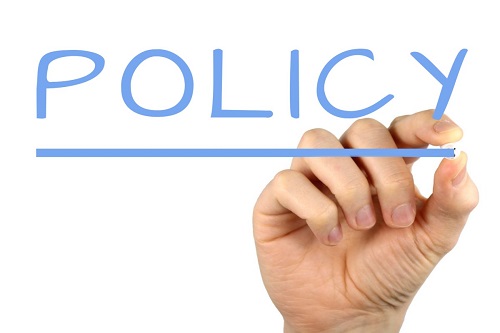

The world of politics – especially international politics – is broad and complicated, and it is hard to identify the boundaries between politics and international relations as such. For instance, when we talk about international relations, we are referring to a wide variety of concepts and ideas that often overlap and that are rarely easily to distinguish. Moreover, the theoretical complexity that surrounds the realm of international affairs is further complicated by the reality on the ground, where political and economic interests mix and become impossible to disentangle.
However, it is possible to identify a theoretical difference between the concept of “international relations” and the idea of “foreign policy”.
The term “international relations” encompasses a wide variety of concepts.
“International relations attempts to explain the interactions of states in the global interstate system, and it also attempts to explain the interactions of others whose behavior originates within one country and is targeted toward members of other countries. In short, the study of international relations is an attempt to explain behavior that occurs across the boundaries of states, the broader relationships of which such behavior is a part, and the institutions (private, state, nongovernmental, and intergovernmental) that oversee those interactions.[1]”
From this short but accurate definition, we can understand that the goal of international relations is to explain what happens at the international level and to provide the tools needed to understand the dynamics among nation states. In other words, the term “international relations” is neutral: it does not imply that these relations are good or bad; it just explains what dynamics regulate the behavior of States at the international level and provides useful interpretations.
Furthermore, the actors analyzed by international relations include:
International relations analyze the behavior and the interactions among such actors, and provide a theoretical framework that explains actions and strategical choices. However, even within the realm of international relations, we can find different perspectives and theories that provide different interpretations of the world and of the relations among States:
All the just mentioned theories attempt to explain the reasons that dictate States’ behaviors at the international level: even if they start from the same assumption (the anarchy of the international system), they clearly reach different outcomes and provide diverse explanations.
Foreign policy is “a policy pursued by a nation in its dealings with other nations, designed to achieve national objectives.”[2] Therefore, while “international relations” is a broad and comprehensive term, “foreign policy” has a more specific meaning, and it refers to all actions made by a country with regard to other States or international bodies. Such actions vary according to the political and economic agenda of the country of concern, and include, inter alia:
The term foreign policy refers to the actions of a given country with a specific purpose in a specific moment. Indeed, the actions of one State inevitably affect other countries and may create imbalances and shifts within the international system.
In other words, we could say that “foreign policy” is one of the main issues analyzed by “international relations” and, at the same time, “foreign policy” shapes the international scenario and modifies “international relations” theories.
In fact, while the theories surrounding international affairs slightly change to adapt to the reality, the foreign policy of one country can drastically change as the President/Prime Minister change. For instance, the recent U.S. elections have brought about an important shift in the American foreign policies
These are just few examples of the volatility and the unpredictability of foreign policy. Indeed, the continuous shifts and evolutions in foreign policy force those specialized in international relations to constantly adapt the existing theories to the evolving reality.
As we have seen, “international relations” and “foreign policy” differ on a number of substantial aspects:
Given the volatility and complexity of politics and international affairs, attempting to find the differences between “international relations” and “foreign policy” may seem an extremely complicated task. Indeed, the term “international relations” is often used in ways that go beyond its real meaning – thus paving the way for misunderstandings and unclear explanations. In fact, we often read or hear the term being used in a politicized sense or as a synonym of “foreign policy”.
However, the word “international relations” only refers to the analysis of the interactions among states and of the ways in which international institutions oversee such interactions. In other words, international relations study foreign policy and provide a theoretical framework that may allow the average person to understand international dynamics and, in some cases, to foresee the implications and the consequences of the foreign policies of the country of concern. Indeed, according to the theoretical background and beliefs (realism, idealism, constructivism etc.) one may have different interpretations and views of the reality.